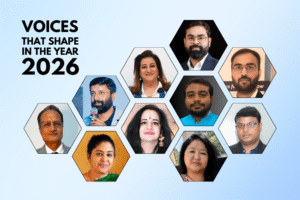Zoho founder Sridhar Vembu has shared a more measured perspective on the evolving role of AI in the software job market. In a recent post on X (formerly Twitter), Vembu noted that while AI vendors are loudly promising massive cost savings and workforce reductions, the actual impact on employment has been, in his words, “small” so far. He emphasized the importance of distinguishing between hype and reality when assessing any new technology.
According to Vembu, although AI is advancing at a rapid pace, its direct effect on jobs has been limited to date. “The field is moving fast and I personally believe there will be impact, but we have not seen the impact yet. It is always good to be aware of hype versus reality when evaluating any technology,” he wrote. His post sparked a lively discussion, with one user commenting that while it’s good news for now, the arrival of AGI (Artificial General Intelligence) could flip the tables dramatically. Another user stressed the importance of upskilling and mastering AI tools, noting that human-machine collaboration will still require human labor.
Vembu also highlighted deeper, long-standing structural problems plaguing the software job market—problems that, ironically, have little to do with AI. He explained that decades of overcapitalization through venture capital, private equity, and IPO funding have created inefficient, bloated IT systems. Vendors, he said, used heavy marketing tactics—spreading fear, uncertainty, and doubt—to drive ever-increasing IT spending among corporate clients.
These inefficiencies led to a peculiar dynamic: instead of fixing broken systems, companies outsourced the mess. Indian IT firms often deployed three or four times as many workers to manage what five people could handle in the West—all to maximize billable hours. Vembu contrasted this with Indian banks and financial institutions, which, constrained by tighter budgets, were forced to build leaner, more efficient IT infrastructures.
Today, Vembu warns, the industry is paying the price. The “flood” of venture capital and unchecked IT expansion is over; a “serious drought” has taken its place. He believes that even without AI’s full impact, the software job market faces serious headwinds simply due to decades of accumulated inefficiency now being laid bare.
In short: AI isn’t the villain (yet)—but the real monster under the bed might be the bad habits we’ve been feeding for decades.







